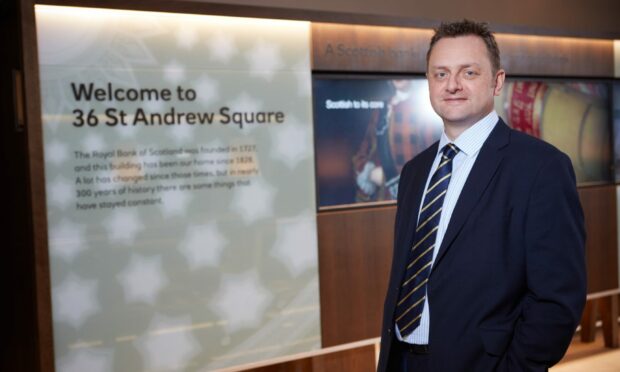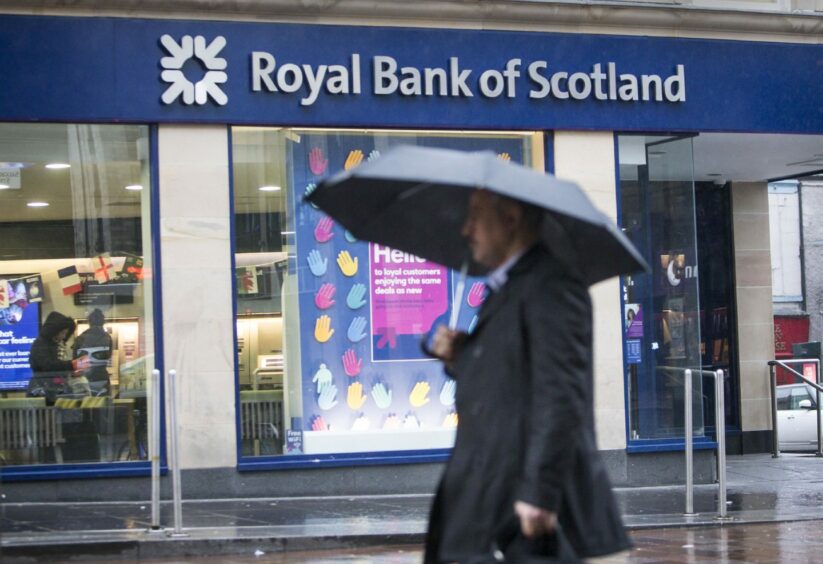Business activity across Scotland’s private sector rose at a slightly faster pace in October, new figures show.
The latest Royal Bank of Scotland (RBS) purchasing managers’ index – a measure of combined manufacturing and service sector output – rose from 56.1 in September to 56.3 last month.
It marked an eighth consecutive month of increased activity, with the latest rise driven by an accelerated expansion in new work.
However, inflationary pressures intensified. Supply constraints, logistical issues, fuel, wage bills, Covid-19 and Brexit were all linked through anecdotal evidence to a further round of input cost inflation, with the rate of increase the fastest on record.
As a result, average charges rose at a near-record pace.
With growth remaining historically sharp as we enter the final quarter of the year, the Scottish economy is showing little signs of slowing.”
Malcolm Buchanan, Royal Bank of Scotland.
RBS said a seventh consecutive month of growing orders was fuelled, in part, by the easing of Covid-19 restrictions earlier in the year.
The rate of growth regained momentum having slowed to a five-month low in September.
Business confidence towards activity over the next 12 months remained “historically elevated” in October, the bank said.
Optimism was attributed through anecdotal evidence to stronger demand conditions and hopes of a rebound in tourism and sustained economic recovery.
Growing workforce
As has been the case in each month since April, private sector employment rose during October.
RBS – part of Edinburgh-based NatWest Group – said companies were taking on additional staff due to greater activity requirements and a strong sales pipeline
The rate of job creation was among the fastest on record, despite easing since September, it added.
A further uplift in employment was also recorded for the UK during October. The rate of increase at the UK level was quicker than in Scotland.
A seventh straight monthly rise in the level of outstanding business at private sector companies was recorded in October.
Greater production requirements, staffing issues and material shortages were all linked to the latest increase.
RBS added the rate of backlog accumulation had accelerated sharply since September to a five-month high and was “solid overall”.
Greater fuel and material costs, shortages, Brexit, Covid-19 and rising wage bills were all cited by survey respondents as drivers of inflation in October, with the rate of increase the steepest on record.
Scottish companies raised their average charges for the 12th month in a row during October.
Price pressures and supply constraints remain a key concern.”
RBS Scotland board chairman Malcolm Buchanan said: “October data pointed to a further solid performance for Scotland’s private sector, with business activity rising steeply again amid an accelerated uplift in new business, attributed in part to the easing of Covid-19 measures earlier in the year.
“Headwinds came from inflationary pressures, as input costs rose at a record pace due to rising fuel, staff and utility costs, as well as supply issues, Brexit and Covid-19.
Growth ‘historically sharp’
“Firms continued to pass greater costs through to clients in October, with the rate of charge inflation easing only slightly from September’s peak.”
Mr Buchanan added: “With growth remaining historically sharp as we enter the final quarter of the year, the Scottish economy is showing little signs of slowing.
“Price pressures and supply constraints remain a key concern, however, and may weigh on growth in the coming months.”

